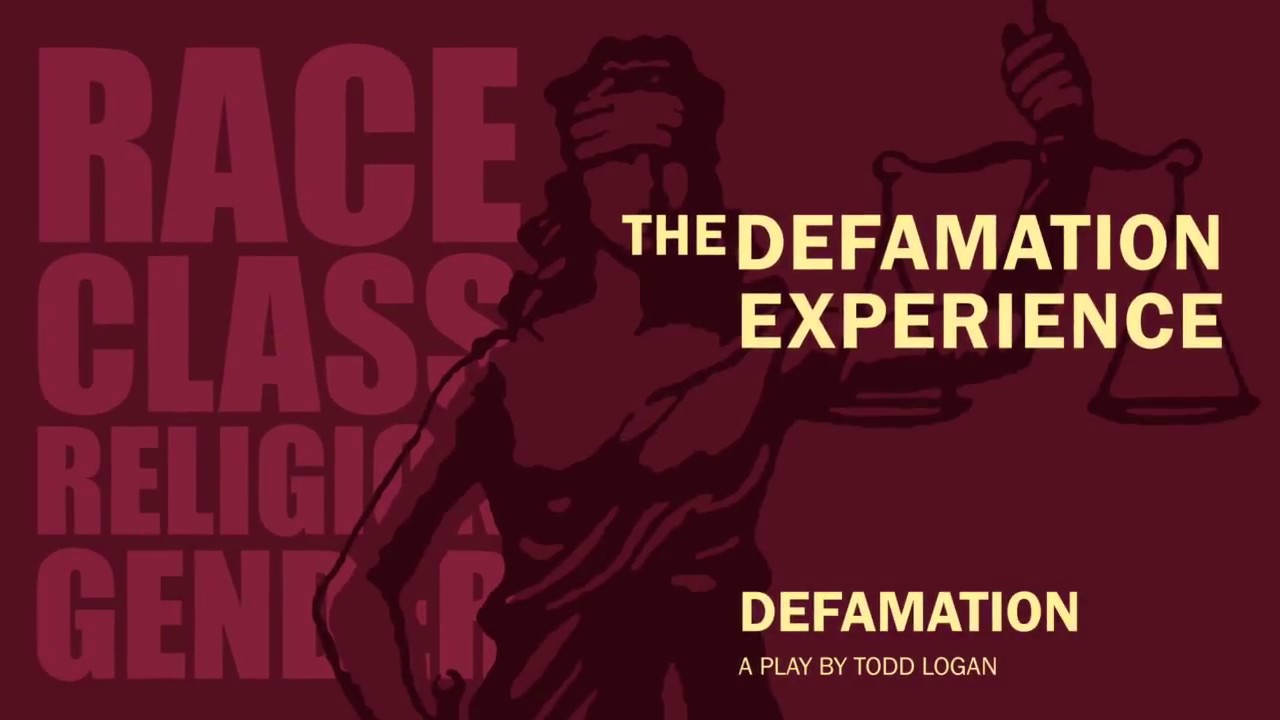“The Defamation Experience,” Courtroom Drama Tackles Race, Religion and Class
By LaShawn Williams
The subject of race in America has always been contentious and complicated and once class and religion are added to the pot, the outcome can indeed be a “spicy stew,” says Ms. Allen (Sharyon A. Culberson) in Todd Logan’s play, “The Defamation Experience.”
Directed by Brian Rabinowitz, Logan’s Chicago-centric courtroom drama, which confronts this sociology head on, is now in its 10th year and has successfully toured at high schools, universities, theaters and law schools across the country. For criminal defense attorney April Preyar who introduced a recent Chicago performance, the work should encourage folks to think outside the box.
“I want people to expand their horizons,” she said. Preyar, who is also the creator of “Trials and Triumph,” a board game that teaches teens about navigating the criminal justice system, sees theater as an ideal medium to address these heavy topics. “The creator gets to push the envelope and confront some difficult truths in a safe space,” said Preyar.
“The Defamation Experience” is the civil case of Wade v. Golden: Regina Wade (Dana Anderson) is the African-American owner of a small graphics design firm who is suing Arthur Golden (Johnny Arena), a Jewish real estate professional, for defamation, via a family heirloom that comes up missing after she has a business meeting with him. Throughout the trial’s twists and turns other societal issues emerged during the testimony including wealth and privilege, stereotyping and racial profiling, all of which often accompany issues surrounding race.
At the trial’s conclusion, this interactive production came with a twist: The audience, not the stage actors, served as the jury and deliberated in favor of Wade, Golden or neither (“undecided”).
Kimm Beavers, a Chicago-based actress who is also the show’s managing producer, facilitated the post-discussion; members of the audience, who varied by age, sex and race, not only talked about why they cast their vote the way they did, but also shared personal, real-life similar experiences that happened to them.
For Beavers, audience demographics from show to show should not come with assumptions about the outcome of the trial. “One thing that I’ve learned in seeing all these different audiences is that I can’t assume that just because the makeup of the audience is a certain way, that they’re going to vote according to what I think,” she said. “The Defamation Experience” indeed addresses hot-button topics; however, it offers the opportunity for audiences to engage civilly in the often-difficult conversations about race in society. Beavers recognizes this, but hopes that people can get past that hurdle, open up, and have the necessary discourse. “I hope that people get comfortable with having uncomfortable conversations,” she said. “That’s the only way you’re going to gain perspective.”
For more information about “The Defamation Experience, visit defamationtheplay.com.
